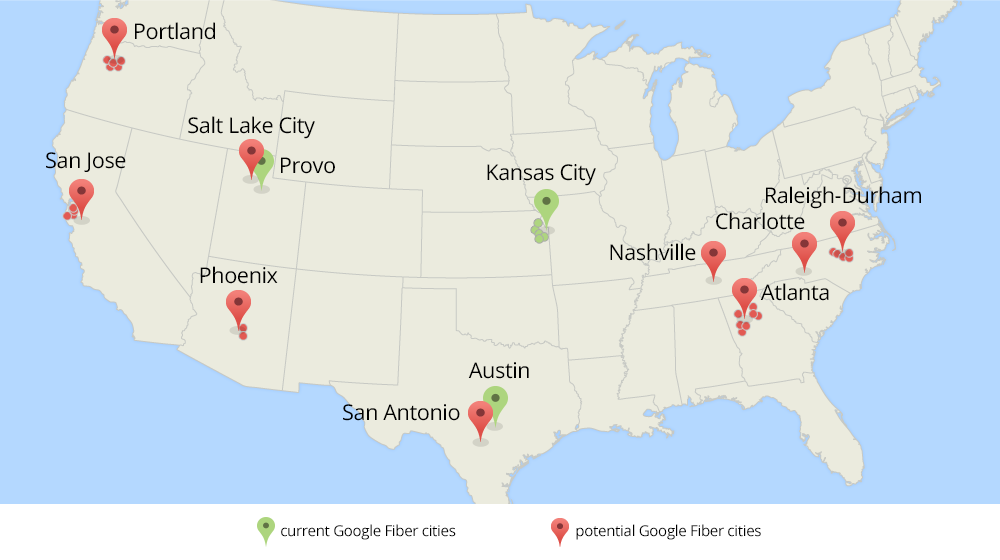Google Fiber Could Expand To 34 New Cities In The US
Google announced on Wednesday that they are planning to work closely with 9 US metro areas to bring the super-fast gigabit internet to residents. Because users nowadays demand an increasingly faster internet connection, Google has made it a priority to build networks with speeds over 100 times faster than most of us are accustomed to. Need I mention that after the announcement was released, there was a massive demand for Google’s new service?
There we have it folks, gigabit internet is a reality
Over the past few years, each time the question of whether Google wants to become a broadband provider popped up, all allegations were dismissed as rumors. Although we've heard numerous speculations regarding the revolutionary gigabit internet in the past several months, the announcement should banish any doubt regarding the Silicon Valley giant’s intentions.
At this point, Google has invited nine cities to determine what it would take to bring Google Fiber to additional locations. From the authorities’ perspective, high-speed internet represents a pillar on which they can expand their economic development plans. In addition to economic growth, high-speed internet could prove invaluable for improving education and sparkling innovation.
So far, only Kansas City, Provo and Austin benefit from the high-speed Google gigabit internet. However, after a thorough analysis and detailed study of the local factors, there’s a high chance Google Fiber will be available in 34 new cities across the US. The metropolitan areas currently negotiating for Fiber are Atlanta, Charlotte, Nashville, San Antonio, San Jose, Portland, Salt Lake City, Phoenix and Raleigh-Durham.
We should have seen it coming
When Google moved into the heart of NYC a few years ago, everyone started speculating that they paid almost $2 billion to gain access to the old Port Authority headquarters that sits atop one of the main optic fiber arteries. While the move couldn't even trick a fourth grader into believing it is a mere coincidence, Google’s attempt to compete with giant national telecom and cable companies resulted in a public shaming.
Given the company’s history and corporate culture, it was hard to believe that Google will accept the role of an unwitting contributor in this case, especially at a time when the mobile and digital services were starting to show their real potential.
Unlike Apple, Google seems to learn from its mistakes, so they revised the plan and turned Fiber into a real business. Not only has Google Fiber proved to be a success in Austin, Provo and Kansas City, but all signs indicate that the introduction of Fiber in nine large metro areas is going to be big.
The good, the bad and the ugly
In all fairness, the United States ranks relatively low on broadband downloads speed tables. This is rather strange considering that US users are the top spending customers worldwide. Perhaps, this is why Google is going through all this trouble to turn Fiber into reality. After all, improving broadband speed in the US can translate into more users who can use the broadband internet. The faster the internet, the more searches executed and the higher the revenues to be reaped by Google.

